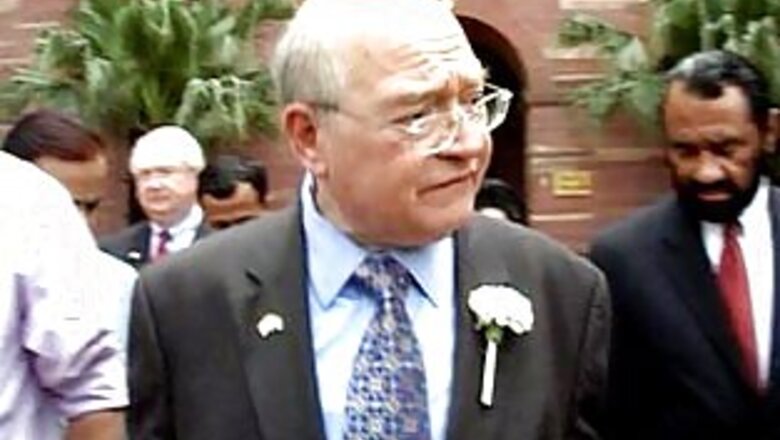
views
Washington: Pakistan-based terrorist group Lashkar-e-Taiba has identified as many as 320 targets across the globe, 20 of which are in India, a top US lawmaker has said.
"In the wake of the (26/11) Mumbai attack, investigators uncovered in controller records and e-mail accounts a list of 320 locations worldwide deemed by the LeT as possible targets for attack. Only 20 of the targets were located within India," Congressman Gary Ackerman said before a Congressional hearing last week.
"The LeT has been attacking US forces in Afghanistan almost from day one and their forces are present throughout Afghanistan. The LeT has been slaughtering Indians by the score for decades. The LeT has put the world on notice that they intend to escalate the carnage and spread it worldwide," he said.
"This group of savages needs to be crushed. Not starting in a month, not in a year, not when the situation stabilises in Afghanistan, not when things are under control in Pakistan, now, today and everyday going forward. We're not doing it, and we're not effectively leading a global effort to do it. And we are going to regret this mistake. We're going to regret it bitterly," Ackerman said.
Noting that it would be unfair and wrong to suggest that the LeT problem is strictly confined to Pakistan and Middle East, he said, adding in fact, one of the key facilitators of the Mumbai attack was an American of Pakistani extraction, referring to David Coleman Headley.
"Unfortunately, the LeT enjoys a substantial global network stretching from the Philippines to the United Kingdom," Ackerman said.
According to Ackerman, though after 9/11, Pakistan officially banned the LeT, the reality is that like other Islamist terrorist groups, LeT maintains a clear public presence and a vast recruiting network by providing extremely useful charitable and social services to millions of impoverished people in that country.
"Public estimates suggest LeT operates some 2,000 offices in towns and villages throughout Pakistan, as well as maintaining ties with the Pakistani military. There is, in fact, no reason to doubt that Pakistan's military is likely paying compensation to the families of the terrorists killed in the Mumbai attacks. These are our allies in the war on terror," he said.
"Operational funding for the LeT comes from charitable fund raising amongst the general population in Pakistan, but also depends heavily upon contributions by Pakistani businessmen living abroad and other wealthy individuals from the Persian Gulf. Let us note too, these states are also our allies in the war on terror," Ackerman said.




















Comments
0 comment